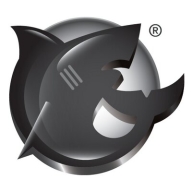

NetApp FAS Series and FreeNAS are storage solutions for different market segments. NetApp FAS Series appears to have the upper hand due to its detailed data management features suitable for enterprises, while FreeNAS is a budget-friendly option appealing to smaller businesses and DIY enthusiasts.
Features: NetApp FAS Series features high availability, SnapMirror, and multi-protocol support for efficient data management. FreeNAS offers easy system integration, container integration, and reliable data storage but lacks NetApp's comprehensive feature set.
Room for Improvement: NetApp FAS Series could improve pricing and simplify configurations, with noted enhancements needed in performance monitoring and documentation. FreeNAS would benefit from clustering capabilities, scalability improvements, and better documentation for novices.
Ease of Deployment and Customer Service: NetApp FAS Series supports on-premises and hybrid cloud environments with strong technical support. FreeNAS typically offers on-premises deployment with good customer service at a lower cost but lacks the advanced support structure of NetApp.
Pricing and ROI: NetApp FAS Series targets larger organizations with a higher price considering capacity and features. FreeNAS, being open-source, presents a cost-effective option with costs tied to hardware, ideal for smaller budgets.


NetApp FAS series is an enterprise-level storage system that provides a wide variety of data management services, including data protection, block and file storage, and data management.
NetApp FAS is designed to be highly scalable, allowing your organization to grow storage capacity on demand. NetApp FAS also supports multiple protocols, including NFS, SMB, iSCSI, and Fibre Channel, as well as various storage architectures, including SAN (Storage Area Network) and NAS (Network-Attached Storage).
The FAS series has multiple data protection and data management features, including snapshots, cloning, replication, and deduplication, to help secure your data and manage it more efficiently. The system integrates with other NetApp products and solutions, to create a unified data management platform. The system can be deployed on-premise, on multi-cloud environments, or hybrid.
NetApp FAS Series Benefits and Features
NetApp FAS series provides its users with several key benefits and features, including:
Reviews from Real Users
NetApp FAS Series stands out among its competitors for a number of reasons. Several major ones are its speed, reliability, and a wide variety of features.
Adriano S., IT project and infrastructure service manager, writes, “The replication feature is noteworthy because it's faster than most and it uses little bandwidth. Then there's the friendly interface that the equipment offers. With this interface, it is very easy to manage.”
Temitope O., a NetApp product manager at Hiperdist Ltd, says, “I like the unified management feature because sometimes you end up running a single protocol on the entire system. You rather have a system for a particular protocol and another system for other protocols, especially in a big environment like mine.”
We monitor all NAS reviews to prevent fraudulent reviews and keep review quality high. We do not post reviews by company employees or direct competitors. We validate each review for authenticity via cross-reference with LinkedIn, and personal follow-up with the reviewer when necessary.